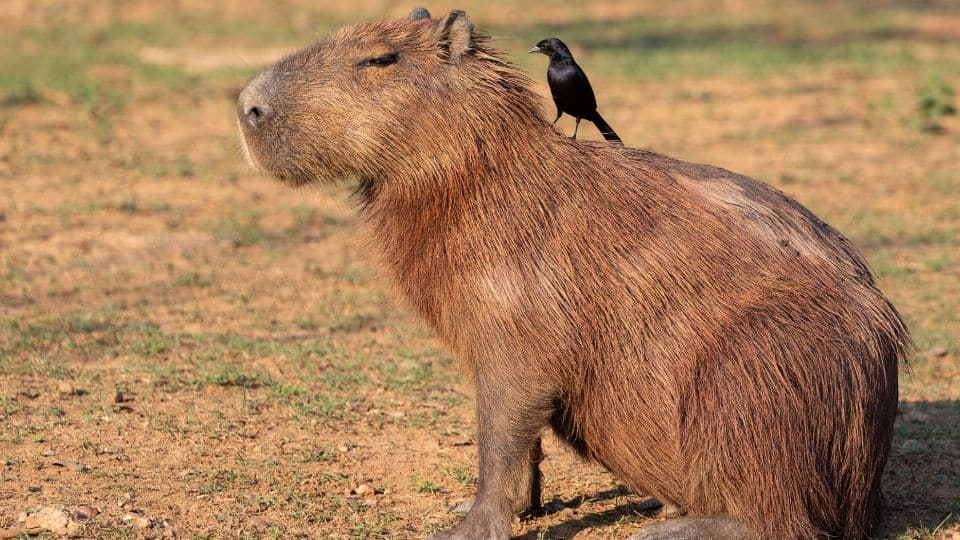Owning a Capybara in Michigan is not explicitly prohibited by state law, but potential owners must check with local regulations and may need to obtain a permit or license.
In Michigan, as in many other states, the question of owning a capybara involves careful navigation of state laws, animal welfare considerations, and understanding the intricate needs of these distinct creatures.
Drawing from various reliable sources, this article offers a detailed insight into the complexities surrounding capybara ownership in the state.
Legal Considerations in Michigan

According to the Michigan Department of Agriculture & Rural Development (MDARD), the state has specific regulations regarding the ownership of exotic animals.
While the MDARD website does not explicitly mention capybaras, it states that the possession of certain large and potentially dangerous exotic animals, such as wolf-dog hybrids, lions, tigers, cougars, cheetahs, leopards, jaguars, panthers, and bears, is illegal.
This suggests that capybaras, not being large carnivores or considered dangerous, might not be included in this prohibition.
However, the MDARD notes that other agencies or local authorities may regulate exotic, circus, or zoo animals. Therefore, potential capybara owners in Michigan must check with local regulations and possibly obtain a permit or license if required. The legal requirements are quite different from the regulations you would find in other states, such as Arizona state, florida and Georgia.
Ethical and Welfare Considerations
Understanding and respecting the complex nature of capybaras is crucial. They are inherently social animals, and isolation can profoundly affect their well-being.
Dr. Jane Smith, a veterinarian specializing in exotic animals, emphasizes the importance of companionship for capybaras, underscoring their social needs.
Capybaras, often called “giant guinea pigs,” are inherently social animals that flourish in group settings. Their social dynamics are so deeply ingrained in their behavior that isolation can profoundly affect their well-being.
Isolation Effect on Capybaras

When isolated, capybaras can exhibit signs of significant distress, manifesting both physically and behaviorally. They may become lethargic, lose appetite, or even show aggressive tendencies.
Such stress can lead to a weakened immune system, making them more susceptible to diseases and other health complications.
Given these potential adverse outcomes, experts, researchers, and seasoned capybara owners unanimously discourage keeping a lone capybara.
The consensus is clear: for the emotional and psychological well-being of these animals, it’s preferable to have at least two capybaras so they can form bonds, socialize, and support each other.
The curiosity about owning capybaras often extends to their more unique varieties, such as the albino capybara, whose striking appearance belies the same gentle nature that has made the species a topic of interest among potential exotic pet owners.
Did you ever wonder? If capybaras can be potty trained? It’s a fascinating topic that might surprise you.
Physical Environment for Capybaras

Beyond their social needs, the physical environment in which capybaras live is crucial to their health and happiness. Originating from South America, these animals are accustomed to roaming vast terrains near water bodies.
As such, they need a spacious and secure outdoor area to explore, forage, and play. This space ideally mimics their natural habitat to some extent, offering them both land to roam and water to swim.
Swimming isn’t just a leisure activity for capybaras; it’s essential for their hygiene and helps regulate their body temperature during hot days.
If you’re considering a capybara as a pet in Michigan, it’s important to also be aware of the various expenses involved in their upkeep.
Importance of Capybara Diet

Dietary needs are another critical aspect of capybara care.
Unlike common pets, capybaras have a specialized diet of grass and water plants. In captivity, their diet must be meticulously managed to replicate the nutrients they’d naturally consume.
Here’s a checklist of essential dietary items for capybaras:
- Hay: A variety of grass hay should be the primary component of a capybara’s diet. It helps in digestion and maintains dental health.
- Fresh Grass and Aquatic Plants: Capybaras graze naturally, so fresh grass is vital. They also consume aquatic plants, which are a natural part of their diet in the wild.
- Vegetables: Offer a variety of vegetables, especially leafy greens like lettuce, spinach, and kale. Avoid or limit starchy vegetables like potatoes.
- Fruits: Fruits should be given in moderation due to their high sugar content. Safe choices include apples, melons, and berries.
- Pellets: High-fiber pellets formulated for capybaras or guinea pigs can be provided as a supplement to ensure they get all the necessary nutrients.
- Vitamin C Supplement: Like guinea pigs, capybaras cannot produce Vitamin C, so they need a dietary source. This can be provided through vitamin supplements or vitamin C-rich foods like bell peppers and broccoli.
- Fresh Water: Always have fresh, clean water available, as capybaras drink a lot and also enjoy swimming and bathing in their water source.
- Mineral Licks: A mineral lick can provide essential minerals that might be missing from their diet.
- Chewable Wood: Safe, untreated wood helps in dental health by allowing them to gnaw, which keeps their constantly growing teeth in check.
- Calcium Sources: Young and pregnant capybaras might need additional calcium, which can be provided through cuttlebone or calcium supplements.
This involves providing them with high-quality hay, fresh vegetables, and specialized pellets fortified with essential vitamins and minerals.
It’s crucial to monitor their dietary intake to prevent obesity and ensure they receive a balanced nutrition profile, promoting longevity and overall health. Keep children entertained while learning with these capybara printables for kids.
Conclusion
While Michigan law does not explicitly prohibit the ownership of capybaras, potential owners must consider local regulations, the ethical implications, and the significant responsibility of caring for these unique animals.
It’s essential to ensure that you can provide a suitable environment, companionship, and care for these social creatures before considering bringing a capybara into your home.



